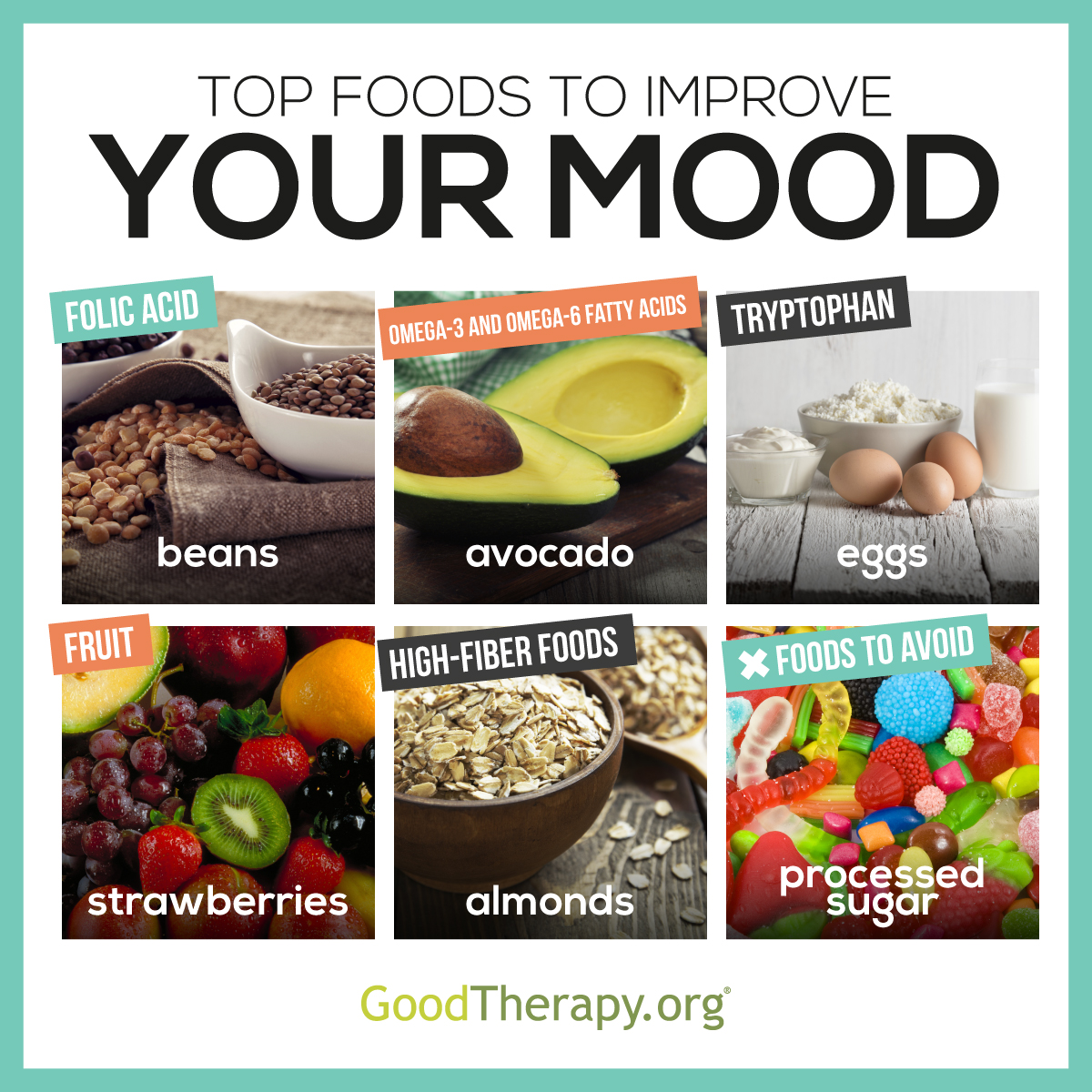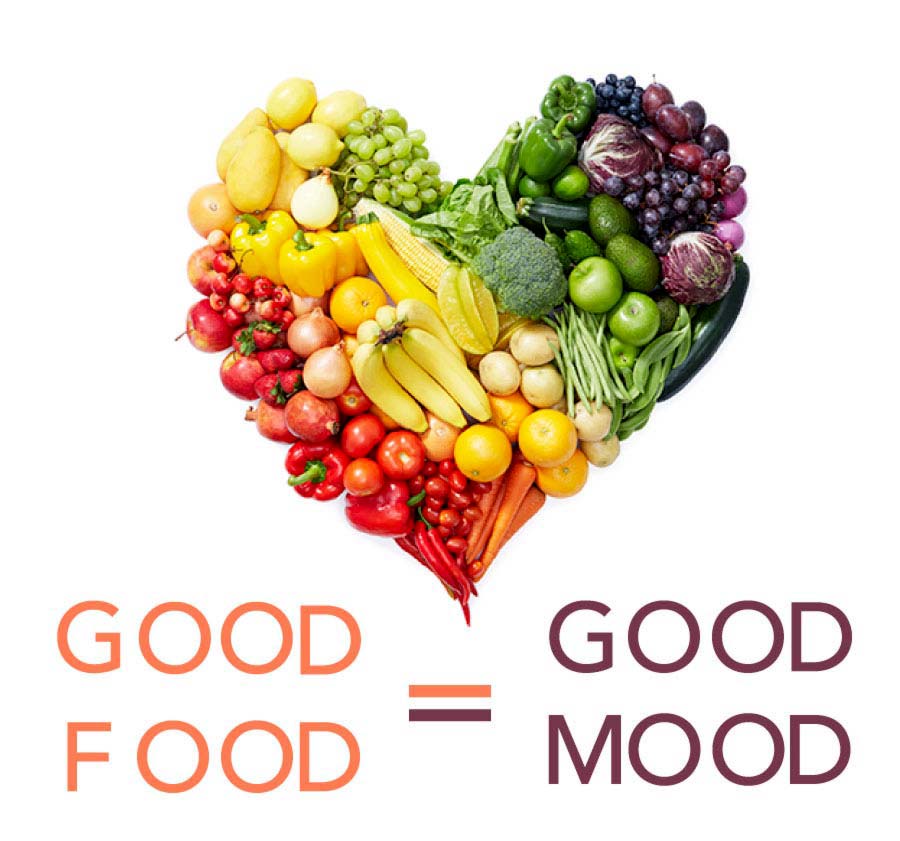In the realm of good mood food, we embark on a culinary journey where nourishment extends beyond the physical, reaching into the depths of our emotional landscape. This discourse delves into the fascinating interplay between food and mood, revealing the transformative power of mindful eating on our overall well-being.
Scientific evidence has illuminated the profound impact certain foods can have on our mood, influencing everything from our energy levels to our emotional resilience. Join us as we explore the nutritional wonders that hold the key to unlocking a brighter, more balanced state of mind.
Introduction
The concept of “good mood food” refers to the idea that certain foods can positively impact our well-being and emotional state. Research suggests that food can influence our mood through both physiological and psychological mechanisms.
Physiologically, some foods contain nutrients that are known to support neurotransmitter production, which can affect our mood. For instance, tryptophan, an amino acid found in foods like turkey and eggs, is a precursor to serotonin, a neurotransmitter associated with feelings of well-being and relaxation.
Psychological Factors
Beyond physiological effects, food can also impact our mood through psychological mechanisms. The act of eating can provide comfort and a sense of satisfaction, which can contribute to an improved mood. Additionally, certain foods may trigger positive memories or associations, further enhancing our emotional well-being.
Foods Associated with Improved Mood
Numerous foods have been scientifically linked to mood enhancement. These foods contain specific nutritional components that contribute to better mood regulation.
Below is a comprehensive list of these foods, along with an explanation of their mood-boosting properties:
Fruits and Vegetables
- Berries:Rich in antioxidants and polyphenols, which have anti-inflammatory and mood-regulating effects.
- Leafy greens:Contain folate, which is essential for the production of neurotransmitters like serotonin and dopamine.
- Citrus fruits:High in vitamin C, which has antioxidant and mood-boosting properties.
- Bananas:A good source of potassium, which helps regulate blood pressure and may improve mood.
Seafood
- Fatty fish:Rich in omega-3 fatty acids, which have anti-inflammatory and mood-stabilizing effects.
- Shellfish:Contain selenium, which is essential for thyroid function and mood regulation.
Nuts and Seeds
- Walnuts:High in omega-3 fatty acids, fiber, and antioxidants.
- Almonds:Contain magnesium, which has calming and mood-regulating effects.
- Chia seeds:Rich in omega-3 fatty acids and fiber, which promote satiety and improve mood.
Dairy Products
- Yogurt:Contains probiotics, which support gut health and may improve mood.
- Milk:A good source of calcium, which is essential for nerve function and mood regulation.
Other Foods
- Dark chocolate:Contains flavonoids, which have antioxidant and mood-boosting properties.
- Green tea:High in L-theanine, an amino acid that promotes relaxation and reduces stress.
- Turmeric:Contains curcumin, a powerful antioxidant with anti-inflammatory and mood-regulating effects.
Role of Mood-Boosting Nutrients: Good Mood Food
Maintaining a positive mood is not only a matter of mindset but also of nourishment. Certain essential nutrients play a crucial role in regulating mood and promoting well-being.
These nutrients include:
Omega-3 Fatty Acids
- Omega-3 fatty acids, found in fatty fish like salmon and tuna, have anti-inflammatory properties that can help reduce symptoms of depression and anxiety.
- Recommended daily intake: 500-1000 mg
Vitamin D, Good mood food
- Vitamin D, obtained from sunlight and fortified foods like milk and yogurt, supports brain function and has been linked to improved mood.
- Recommended daily intake: 600-800 IU
Magnesium
- Magnesium, present in leafy greens, nuts, and legumes, helps regulate nerve and muscle function, which can affect mood.
- Recommended daily intake: 310-420 mg
B Vitamins
- B vitamins, particularly B12 and folate, are essential for brain function and mood regulation.
- Recommended daily intake: Varies depending on specific vitamin
Incorporating Good Mood Foods into a Balanced Diet

Maintaining a balanced and varied diet is crucial for overall well-being. It provides the body with the essential nutrients it needs to function optimally, including those that support mood regulation. Incorporating mood-boosting foods into daily meals can enhance mood, promote emotional stability, and improve cognitive function.
To incorporate good mood foods into a balanced diet, consider the following practical tips and suggestions:
Meal Planning and Preparation
- Plan meals ahead:Dedicate time to plan meals that include a variety of mood-boosting foods. This helps ensure a balanced intake of these nutrients throughout the day.
- Incorporate variety:Include a wide range of mood-boosting foods from different food groups to ensure a diverse intake of nutrients. This promotes overall well-being and reduces the risk of nutrient deficiencies.
- Choose nutrient-rich options:Opt for whole, unprocessed foods over processed and sugary alternatives. Whole foods are typically richer in vitamins, minerals, and antioxidants, which support mood regulation.
- Cook meals at home:Cooking meals at home allows for greater control over ingredients and portion sizes. This helps ensure meals are balanced and tailored to individual dietary needs and preferences.
Healthy Cooking Methods for Mood-Enhancing Meals

Preparing mood-boosting meals involves not only selecting nutritious ingredients but also using cooking methods that preserve their nutritional value. Here are some healthy and effective cooking techniques to consider:
Fresh ingredients provide optimal nutritional value. Opt for fruits, vegetables, and whole grains in their natural state whenever possible. Minimizing processed foods is also crucial as they often contain added sugars, unhealthy fats, and preservatives that can negatively impact mood.
Cooking at Home
Cooking meals at home allows for greater control over ingredients and cooking methods. This empowers you to create dishes that cater to your specific dietary needs and preferences while maximizing the nutritional benefits of your meals.
Steaming
Steaming involves cooking food over boiling water, preserving nutrients that may be lost through other methods. Vegetables, fish, and poultry are excellent choices for steaming, retaining their natural flavors and vibrant colors.
Grilling
Grilling is a healthy way to cook meats, poultry, and vegetables. It allows excess fat to drip away, reducing calorie intake. Grilling also imparts a smoky flavor to foods, enhancing their taste.
Roasting
Roasting vegetables at high temperatures caramelizes their natural sugars, creating a sweet and flavorful dish. Roasting also intensifies the flavors of meats and poultry while retaining their juiciness.
Sautéing
Sautéing involves cooking food in a small amount of oil over medium heat. This method is ideal for vegetables, lean meats, and tofu. Sautéing allows for quick cooking times, preserving nutrient content.
The Mind-Body Connection

Food and emotional well-being are inextricably linked, forming a complex relationship. Our emotional states can significantly influence our food choices, while the food we consume can, in turn, affect our mood and overall mental health.
When we experience stress, anxiety, or sadness, we may crave comfort foods high in sugar, fat, and salt. These foods provide temporary pleasure, but their long-term effects on our mood and physical health can be detrimental.
Emotional Eating
Emotional eating is a coping mechanism that involves using food to regulate emotions. It can be triggered by both positive and negative emotions, and while it may provide short-term relief, it often leads to feelings of guilt, shame, and weight gain.
Quick FAQs
What are the key nutrients that contribute to a good mood?
Essential nutrients for mood optimization include omega-3 fatty acids, B vitamins, magnesium, zinc, and tryptophan.
Can diet alone cure mood disorders like depression?
While diet can play a supportive role in managing mood disorders, it’s important to note that it cannot replace professional treatment. A combination of therapy, medication, and dietary interventions may be necessary for effective management.
How can I incorporate good mood foods into my daily meals?
Start by adding a variety of fruits, vegetables, whole grains, and lean proteins to your plate. Consider incorporating mood-boosting snacks like nuts, seeds, or dark chocolate into your routine.
